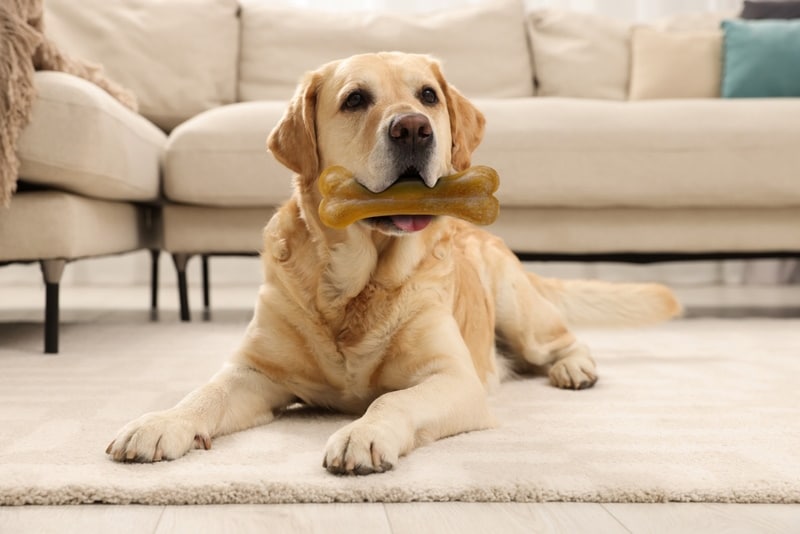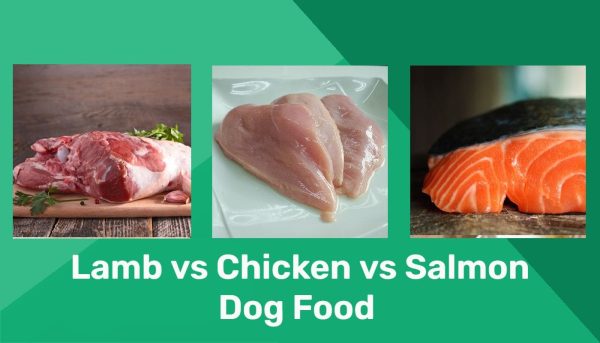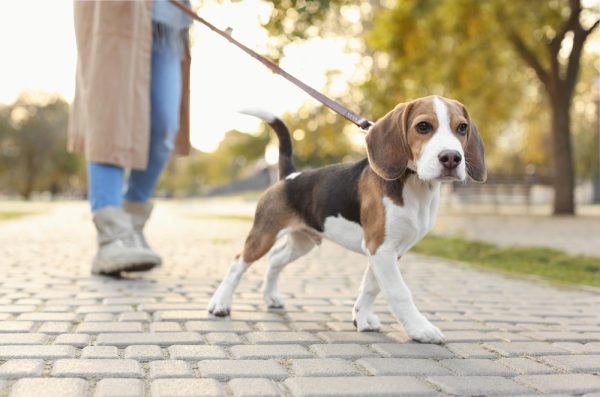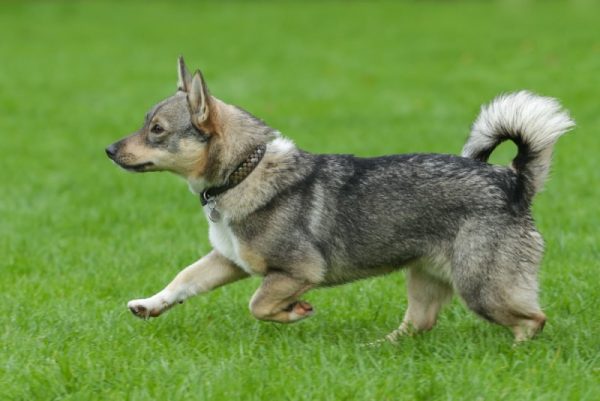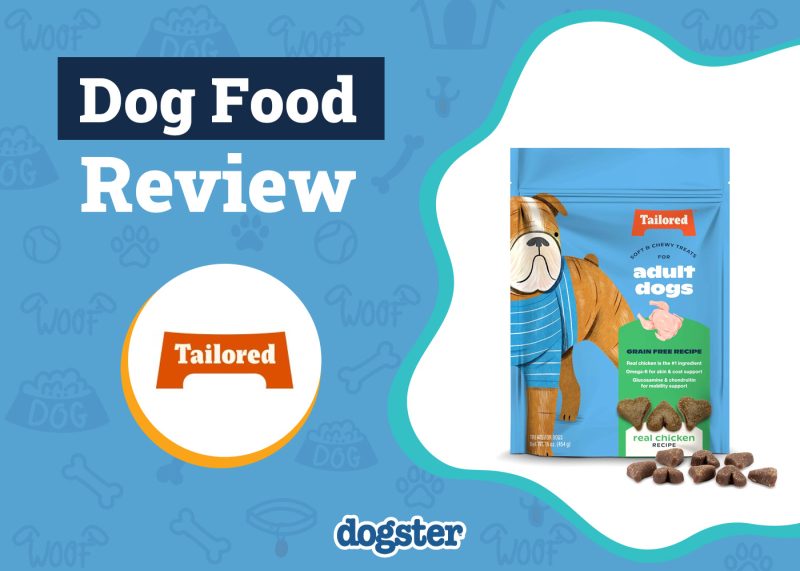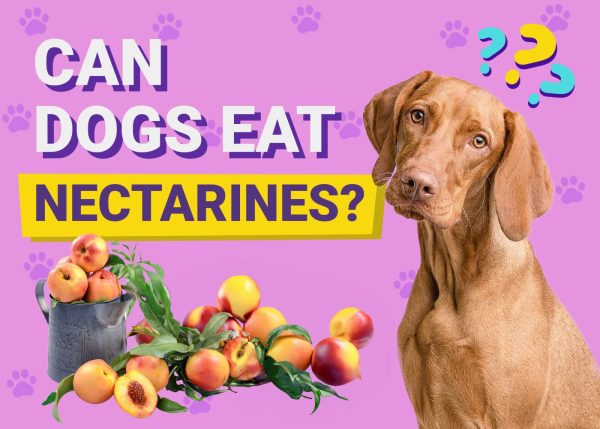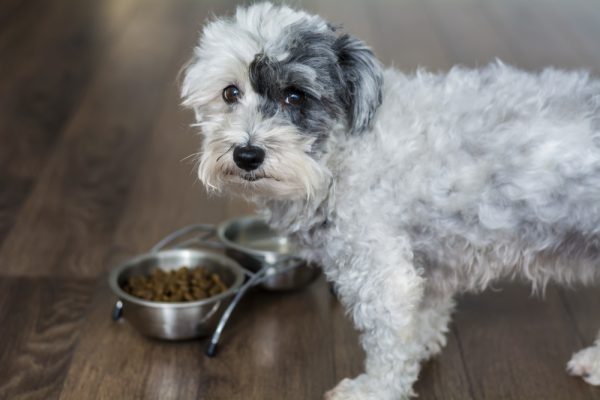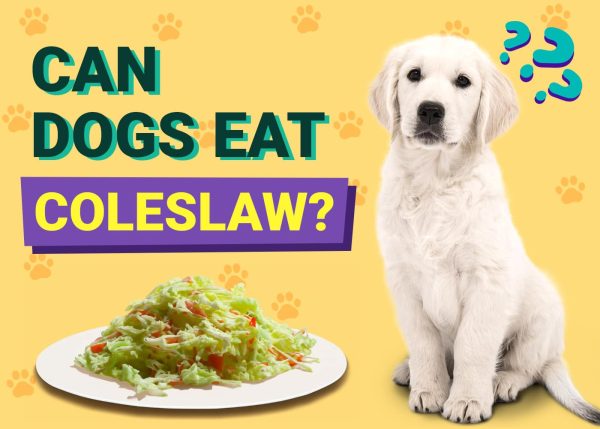Rawhide chews are extremely popular, and you can purchase them almost anywhere, including pet stores, so it can be a surprise to learn that they can be dangerous for your pet to consume. If you are as confused as we were, keep reading as we look into the dangers that they present, discuss the different brands, and see if there is a good way to give rawhide to your pet while keeping them safe.

What Is Rawhide?
Rawhide is typically a by-product of the leather industry and manufacturers usually make rawhide chews from the inner layer of cow or horse hides. The process involves cleaning the hide, cutting it into manageable shapes, and then treating it to create chewable dog treats that can come in various shapes and sizes, including bones, chips, and rolls. The different sizes and shapes help ensure that there is one available for most breeds and chew strengths.
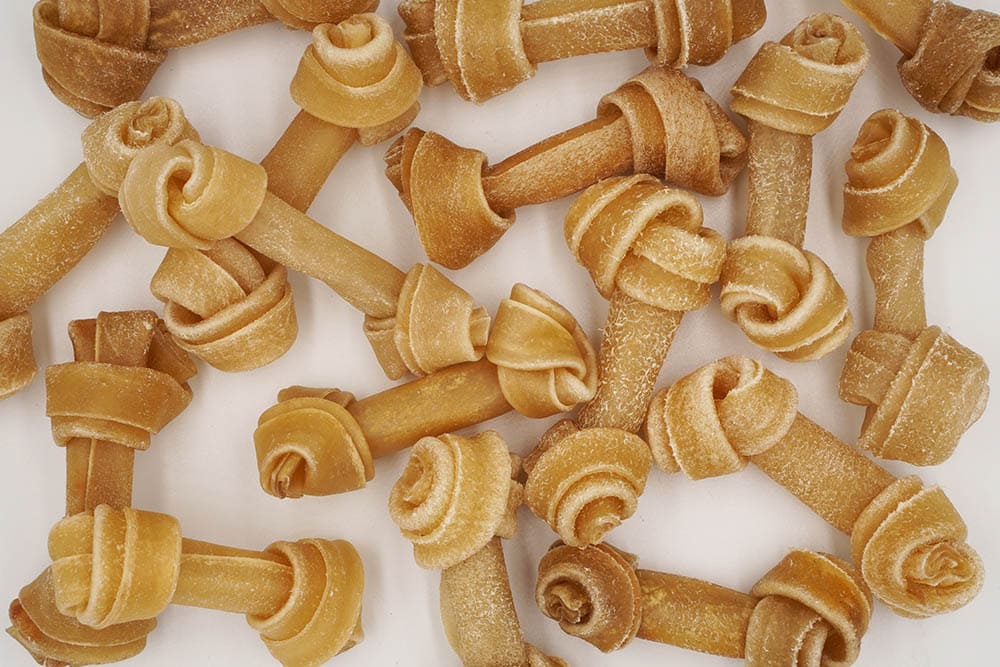

Why Shouldn’t Dogs Eat Rawhide?
Choking Hazard
One of the biggest risks of feeding rawhide to your pet is that it presents a choking hazard. Dogs can bite off large pieces, which can then become lodged in their throat, causing them to start choking. If your dog can’t dislodge it, even with your help, you will need to make an emergency trip to the veterinarian.
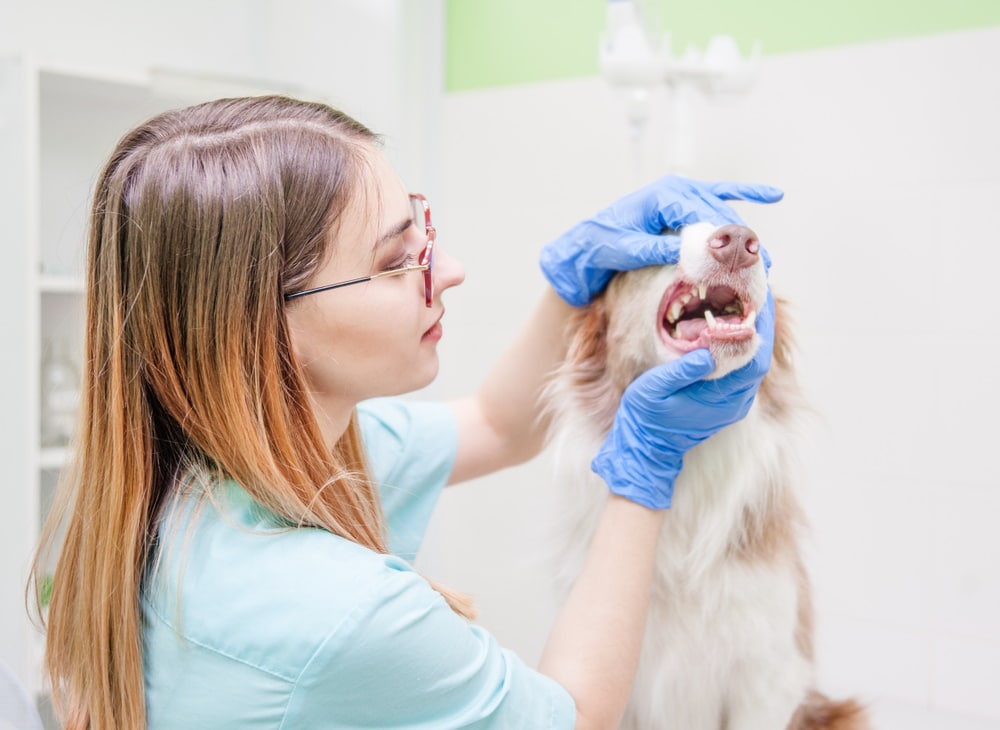
Digestive Issues
Rawhide is tough and can be difficult for dogs to digest, which might lead to an upset stomach, diarrhea, and vomiting. The ingested pieces can also swell up to four times their original size, which might lead to intestinal blockages that could require surgery.
If your dog is showing signs of digestive issues, we suggest you speak to a vet.
If you need to speak with a vet but can't get to one, head over to PangoVet. It's our online service where you can talk to a vet online and get the advice you need for your pet — all at an affordable price!

Quality Control Issues
The quality of the rawhide from one product to another can vary significantly, with some brands using better-quality hides and processing them more safely than others. There can also be a risk of contamination with bacteria like salmonella or campylobacter. Unfortunately, there aren’t any regulatory bodies for these treats, so it can be challenging to find a high-quality product. However, since the production of rawhide often involves adding preservatives, flavorings, and bleach to clean and make the chews more appealing, it is well worth the effort to do your research before making a purchase.
Benefits of Feeding Rawhide to Dogs
The benefit of allowing your pet to chew on rawhide is in its durability and chewiness, and they may help promote oral health. It often lasts much longer than other chewable toys and can provide a constructive outlet for their chewing behavior, providing mental stimulation to help reduce boredom and anxiety.
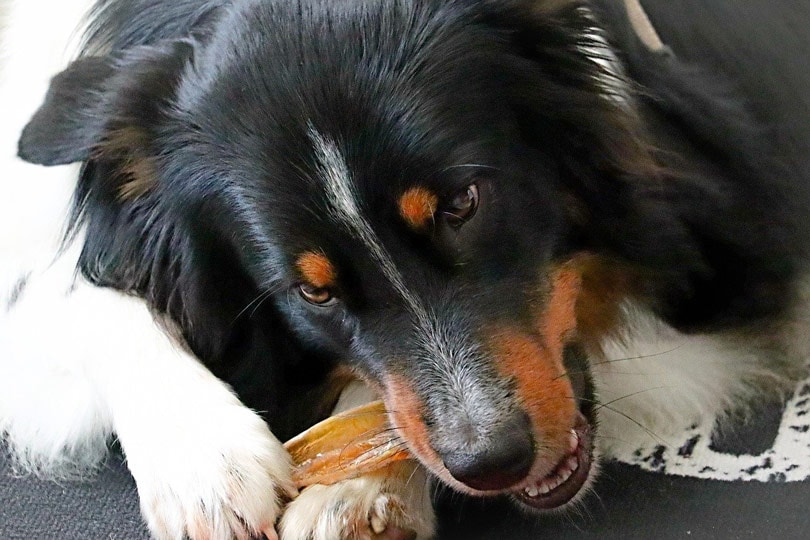

How to Safely Feed Rawhide to Your Dog
If you would like to give your dog rawhide chews, there are things you can do to help mitigate some of the risks:
- Select a rawhide chew that is appropriate for your dog’s size and chewing habits. The chew should be large enough that they can’t swallow it whole but not so large that they can’t manage it. For strong chewers that are able to break large chunks of rawhide off quickly you may be best to avoid rawhide chews altogether.
- Always supervise your dog while they are enjoying their rawhide treat, and take it away when playtime is over, so you will know if any of the pieces break off and can intervene before your pet swallows them.
- Use American-made, untreated rawhide treats when possible.
- Limit the amount of time that your dog spends chewing rawhide each day.
- Dispose of any small pieces that you find to prevent your dog from eating them.
- Switch to a new rawhide when the old one starts to deteriorate.

Alternatives to Rawhide
Dental Chews
Dental chews can be a great alternative to rawhide and are more digestible and more effective at keeping your pet’s teeth clean. Look for chews that are approved by and have the Veterinary Oral Health Council (VOHC) seal of acceptance.
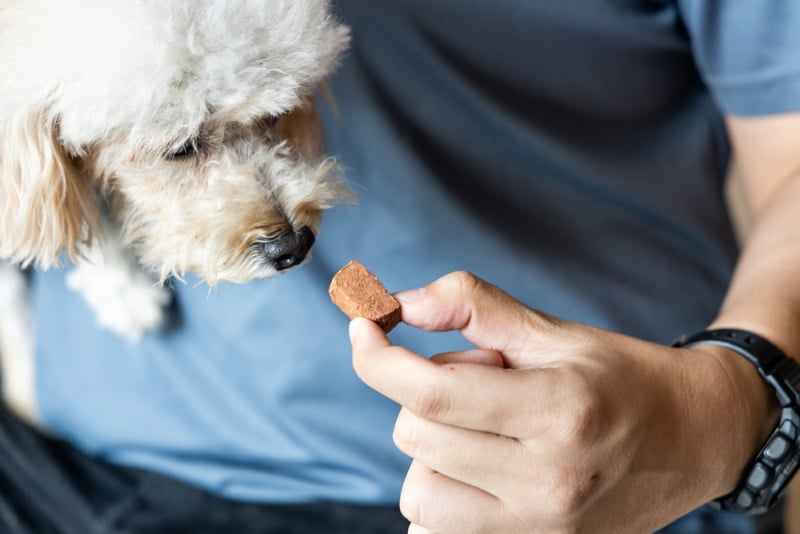
Natural Chews
Natural chews like bully sticks, beef tendons, or ears can be a more digestible substitute for rawhide as long as you get them from a reputable source.
Rubber or Nylon Chew Toys
Durable chew toys made from rubber or nylon can provide hours of safe chewing without the risks associated with ingesting rawhide, and many of them also work to help keep your pet’s teeth clean.
Antlers and Horns
Deer, elk, or buffalo antlers and horns are long-lasting chews that are natural and contain minerals beneficial to dogs. However, they are hard and many vets do not recommend them due to the risk of damaging teeth, especially for dogs with aggressive chewing habits.
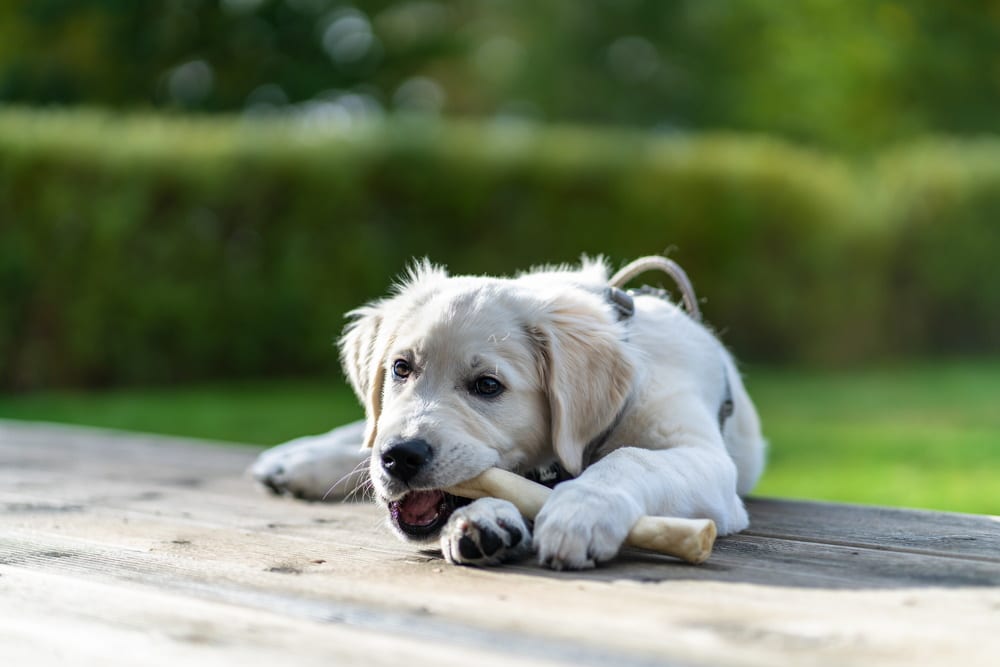

Conclusion
Rawhide can present a choking danger to your pet, and it can also lead to an intestinal blockage that requires surgery. Therefore, you should never allow your pet to chew on rawhide unsupervised, even for a short time, as aggressive chewers can tear them up quickly. If you want to let your pet enjoy rawhide, find a high-quality brand, and let them chew on it for a short time each day as you supervise them, then remove it when they are done. Throw away any small pieces, and replace the rawhide when it starts to deteriorate to keep it fresh and reduce the risk of an accident. Better options are dental chews or rubber and nylon chews, as these reduce the risk of choking and digestive problems.
Featured Image Credit: Hollysdogs, Shutterstock
